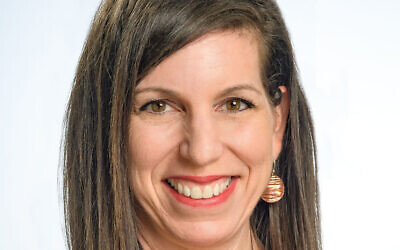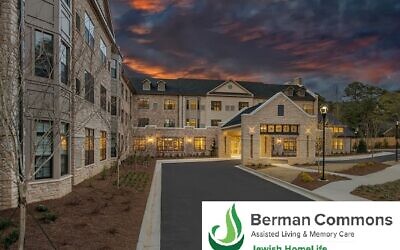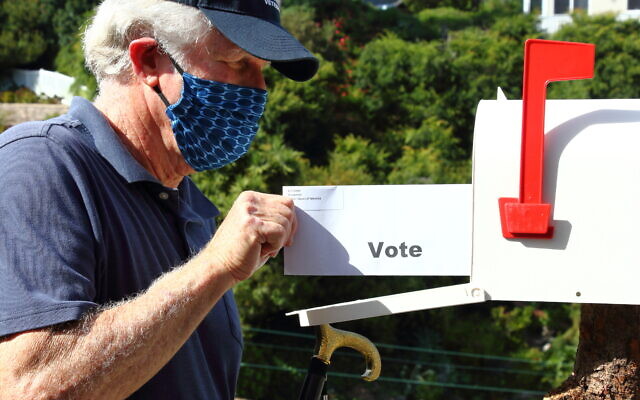Helping Seniors Vote in Time of COVID
Volunteers from the League of Women Voters were invited to help residents and staff during the COVID-19 pandemic.
This year, nearly one-quarter of voters will be age 65 and older, according to the Pew Research Center. This would be the highest share since at least 1970. In 2016, although Boomers and older generations accounted for 43 percent of eligible voters, they cast 49 percent of the ballots. So it’s expected that older adults are more likely to vote this year and form a larger share of the electorate.
AARP reports that 71 percent of those aged 65 and older go to the polls in normal years, compared with 46 percent of those ages 18 to 29.
This has been anything but a normal year, as COVID-19 complicated the voting process for the elderly this year.
A recent AARP poll of 800 likely Georgia voters aged 65 and older — conducted Aug. 30-Sept. 5 by a professional polling firm — found 37 percent planning to vote by absentee ballot, while 35 percent planned to vote in person during early voting, which runs from Oct. 12-30.
While online research shows that over 90 percent of the elderly live in their own homes, since March, the state has placed various restrictions in the comings and goings of residents and staff at nursing homes, independent living and assisted living residences because of the COVID-19 pandemic. At times, residents were in total lockdown in their own apartment units, receiving hand-delivered meals rather than going into large dining rooms, other communal activities were suspended, and visits by families were curtailed.
Under these circumstances, how do residents register to vote, apply for and fill out absentee ballots or go to polling places – either early or on Nov. 3?

According to Shari Bayer, chief marketing and communications officer at Jewish HomeLife, JHL invited the non-partisan League of Women Voters to conduct voter registration and absentee ballot application drives on its campuses in Buckhead, Dunwoody and Johns Creek. The effort was made for both residents and staff.
“Each community handles it differently,” Bayer told the Atlanta Jewish Times. “For those in independent living, there’s no problem going to polling places. For residents in nursing homes, families can determine how their family members can vote, although families are not now allowed to visit. In the assisted living facilities, there’s a mixture of both.”
Bayer said that about 500 residents live in the various Jewish HomeLife facilities, which include Berman Commons, The Cohen Home, The Jewish Tower, The William Breman Jewish Home and The Zaban Tower.
Prior to the League of Women Voters visiting all their facilities in late August, activity directors in each location were sent registration forms and absentee ballot applications for residents to complete, with or without help. League of Women Voters volunteers were then able to “check the documents, assist with completing if needed, and make sure everything was correct,” Bayer said.

LWV volunteers helped the residents and staff in each of the Jewish HomeLife locations either outside, or in the vestibules when it rained one day, Bayer added.
“For those residents and staff who could not participate that day, all campuses have forms available to ensure that everyone has an opportunity to complete the applications. We provide support as needed to help residents complete their form independently,” she said. “We do everything possible to encourage and ensure that all residents who want to vote have the opportunity to do so.”
Bayer said she could not say definitively how Jewish HomeLife would enable assisted living residents to get to polling places this year. She hoped that rides could be provided to residents in independent living, “But we cannot make those decisions right now,” she said in early October, a month before Election Day.
A study by the Georgia Department of Human Services in 2017 came to several notable conclusions. It concluded that the state had – and would continue to have – the 11th fastest-growing 60-plus population and the 10th fastest-growing 85-plus population in the country between the years 2010 and 2030. This follows the pattern during the 20th century in which the number of Georgians aged 60 and over increased ninefold compared to a four-fold growth in the state’s overall population.
- Seniors
- COVID
- Shari Bayer
- Jewish HomeLife
- League of Women Voters
- Berman Commons
- the Cohen Home
- The Jewish Tower
- The William Breman Jewish Home
- The Zaban Tower
- COVID-19
- Coronavirus
- AARP
- politics
- Voting
- Boomers
- Pew Research Center
- Georgia voters
- polling places
- Absentee ballots
- dunwoody
- John's Creek
- Georgia Department of Human Services
- Lockdown
- Election Day
- Community
- Senior Living
- JHLC Medical Services
- JHLC




comments